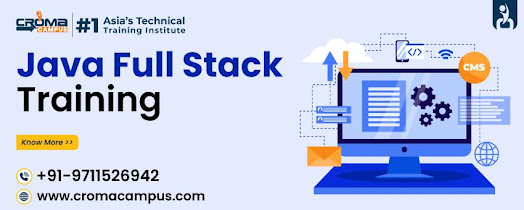Introduction
In recent times, Full-stack development has emerged as a popular career choice in the tech industry, offering professionals the opportunity to work on both the front-end and back-end of web applications. A knowledgeable full-stack developer possesses a diverse set of skills, ranging from proficiency in programming languages to an understanding of databases and web servers. Moreover, if you also desire to turn into a knowledgeable developer, you must obtain a legit Best Full Stack Developer Course Online. This way, you will know every crux of this process.
Let's now explore
and learn what it takes to become a knowledgeable full-stack developer and the
steps you can take to achieve mastery in this field.
Prerequisites
In order to turn into a knowledgeable
developer, you need to imbibe some mandatory skills, and they are as follows: -
- Master Front-End Technologies: Learn how to create the visual parts of websites using HTML, CSS,
and JavaScript.
- Learn a Front-End Framework: Get familiar with tools like React, Angular, or Vue.js
to build interactive website features more easily.
- Understand Back-End Development: Learn server-side languages like Node.js, Python,
or Java, and how to work with databases, APIs, and web servers
to manage the "behind-the-scenes" of websites.
- Learn a Back-End Framework: Explore frameworks like Express.js, Django, or Spring Boot to
build powerful web applications more efficiently.
- Database Management: Understand how to design, query, and manage databases like MySQL,
PostgreSQL, or MongoDB to store and retrieve information for your web
applications.
- Version Control: Learn how to use tools like Git to manage your code changes,
collaborate with others, and keep track of different versions of your
code.
- DevOps and Deployment: Gain knowledge of DevOps principles and tools like Docker,
Kubernetes, or Jenkins to automate the process of deploying and
managing your web applications.
- Testing and Debugging: Learn how to test your code using frameworks like Jest, PyTest,
or JUnit to ensure it works correctly, and use debugging tools to fix any
errors.
- Build Real-World Projects: Apply your skills by working on real projects that showcase your
abilities to potential employers and help you gain practical experience.
- Communication and Collaboration: Develop good communication skills to work effectively with
designers, product managers, and other developers in a team environment.
- Problem-Solving Skills: Cultivate your problem-solving abilities to tackle complex
challenges in web development and find creative solutions.
By mastering these
skills, you'll be well on your way to becoming a knowledgeable Full Stack
Developer ready to take on exciting projects in the tech industry.
Conclusion
In a way, turning
into a knowledgeable full-stack developer requires dedication, continuous
learning, and a passion for technology. By mastering front-end and back-end
technologies, understanding database management, and honing your problem-solving
skills, you can embark on a rewarding career path in full-stack development.
So, in a way, joining a legit Full
Stack Developer Training
will be a huge help for your career as you will end up knowing everything about
this procedure right from scratch.









